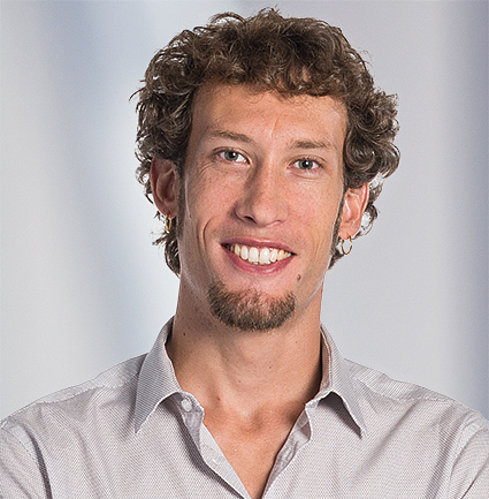2017 Finalist Graham H. Diering, Ph.D. The Solomon H. Snyder Department of Neuroscience Johns Hopkins University School of Medicine

Graham Diering received his bachelor's and doctorate degrees at the University of British Columbia. It was here that he worked with Dr. Masayuki Numata in the Department of Biochemistry and Molecular Biology focusing on the regulation of pH at neuronal synapses by acid/base transport proteins. Graham Diering continued to work in the field of cellular/molecular synapse biology as a postdoctoral fellow under the mentorship of Dr. Richard Huganir at Johns Hopkins University in the Department of Neuroscience. His research involved characterizing changes in synapse composition that occur during sleep. Graham Diering is now starting his own research group as an assistant professor at the University of North Carolina, Chapel Hill in the Department of Cell Biology and Physiology where he will focus on the role of sleep in neural development.
Homer1a drives homeostatic scaling-down of excitatory synapses during sleep.
Sleep is an essential and evolutionarily conserved process that supports higher cognitive functions such as learning and memory. At least one major target of sleep is the neuronal synapse, the points of contact between neurons where memories are generated and stored. In studies using mice, Graham Diering and colleagues used biochemistry, proteomics and imaging methods to characterize the changes that occur at synapses during sleep. In accordance with a controversial model of the function of sleep called the "sleep homeostasis hypothesis", he found that synapses across the brain became weaker during sleep by reducing the levels of excitatory neurotransmitter receptors. Synapse weakening is important to reduce the "noise" in the brain accumulated through a day's experience, promoting memory consolidation and supporting the restorative functions of sleep. This work illuminates some of the molecular mechanisms active in the brain during sleep, and may aid in the treatment of many diseases in which sleep is impaired.
For Dr. Diering’s full essay, seen Science online at sciencemag.org.
